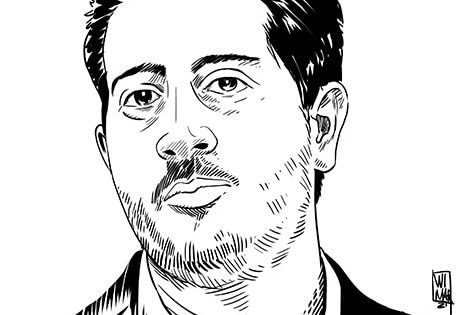Darsi Ferrer began the hunger strike on 13 October 2009 to protest his prison conditions.
(RSF/IFEX) Medical doctor and dissident journalist Darsi Ferrer, who began a hunger strike on 13 October 2009, entered his 80th day in “preventive detention” on 15 October.
His wife, Yusnaimy Jorge, has written an open letter condemning the circumstances of his imprisonment, at Valle Grande jail in Havana.
“The prosecutor’s office has now held him in prison for three months, ignoring the fact that criminal procedure provides for preventive detention only when the offence is particularly serious, there is a high incidence of it in the country, or there is a risk that the defendant will try to escape justice. None of these conditions applies to Darsi’s case”, Yusnaimy Jorge wrote in a letter, posted on the website Cubanet.
Ferrer was accused of illegally obtaining building materials to renovate his house, something he has always denied. Under the law governing this kind of offence, his trial should have been held at the latest 60 days after his arrest.
He began a hunger strike on 13 October to protest his prison conditions. He was refused medical treatment on 9 September despite suffering from severe dental pain. The prison governor justified his refusal by claiming that he had not been able to obtain the necessary permission from counter-espionage services!
“The reasons for Darsi Ferrer’s detention are no longer in doubt, after 80 days in custody in contradiction with the laws of the country. While Cuba wants to show the world a face of progressive openness and dialogue, the internal reality is at odds with any improvements in public freedoms,” Reporters Without Borders said.
“The situation for Cuban journalists and bloggers is not getting better – far from it. Some 25 of them are still in prison, some having been sentenced to up to 27 years. Among them is Reporters Without Borders’ correspondent, Ricardo González Alfonso, who has been held since March 2003 and is serving a 20-year term,” the worldwide press freedom organisation said.
There has been an upsurge in threats against independent journalists in the past few months. One of them, Yoel Espinosa Medrano, received death threats from militants belonging to the sole political party on 12 October.
On 2 October, police surrounded a house to block access to a seminar being held by the independent communicators’ network. They also briefly detained several dissident journalists, confiscating a camera, memory cards and notebooks. In response to their protests, one police officer told them, “The laws do not apply to dissidents.”
To this incomplete list of violations of public freedoms, should be added the refusal of an exit visa to famous blogger Yoani Sánchez who should have travelled to the United States to receive a prize. The young woman has just had her fourth refusal. Sánchez has been nominated for the 2009 Reporters Without Borders prize in the Cyber-freedom category.
Cuba is ranked 169th out of 173 countries in Reporters Without Borders’ world press freedom index for 2008.


